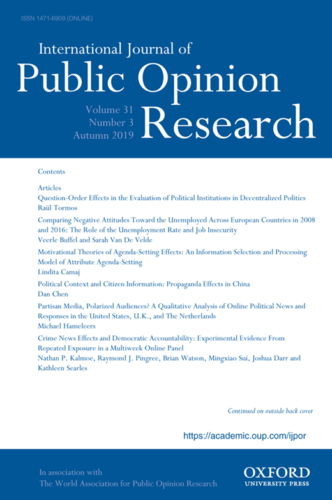
Abstract
This study leverages a survey experiment in the lead up to the 2016 U.S. presidential election to evaluate how partisan biases, poll results, and their methodological quality interact to shape people’s assessments of polling accuracy and electoral expectations. In a nationally representative sample, we find that individuals disproportionately find polls more credible when their preferred candidate is leading. Partisan biases are mitigated when the polls themselves vary in objective indicators of quality: while more educated respondents are more likely to identify high-quality polls accurately, low education respondents’ bias was reduced when they encountered polls with varying methodological quality. Finally, these moderators influence respondents’ electoral expectations as well. We discuss the implications for journalistic coverage of polls, public opinion, and political polarization.
Authors
- Ozan Kuru
- Josh Pasek
- Michael W. Traugott

